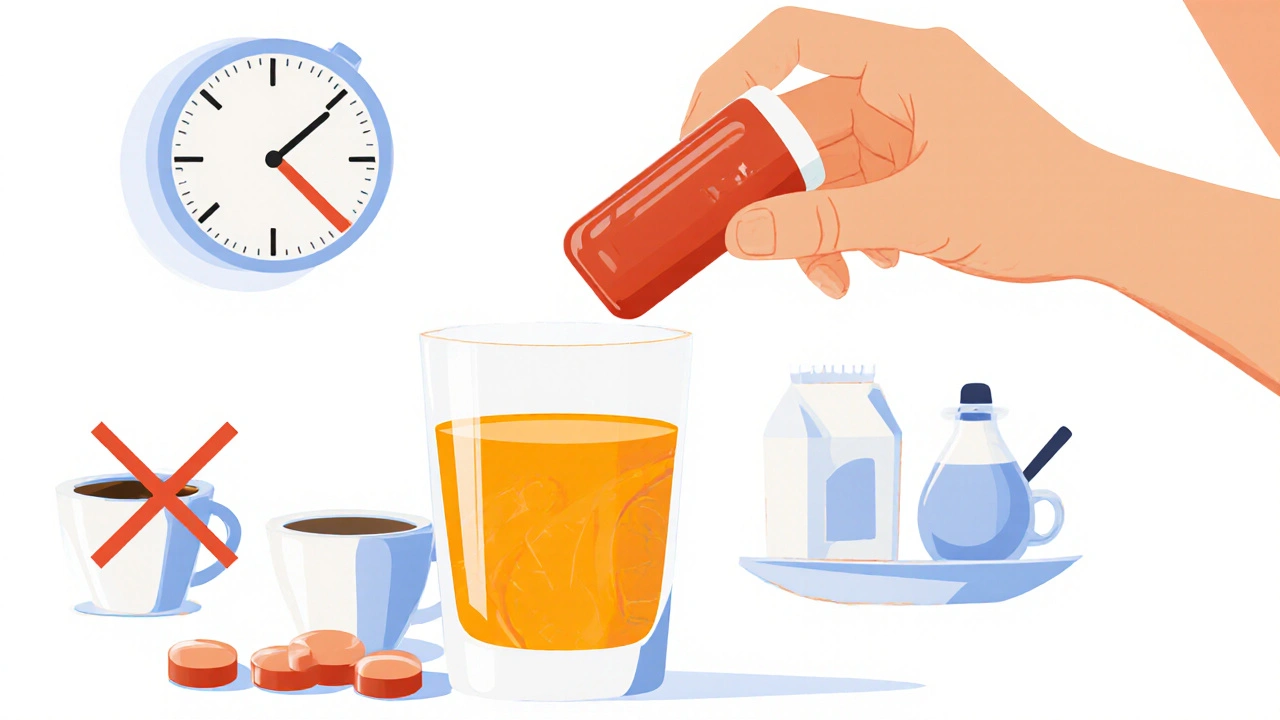Iron Absorption Problems: Causes, Signs, and What You Can Do
When your body can’t absorb enough iron, a mineral essential for making hemoglobin and carrying oxygen in your blood. Also known as poor iron uptake, it’s not just about eating less meat—it’s about how your gut works, what you eat with it, and hidden health issues. Many people think low iron means they’re not eating enough red meat or spinach. But if you’re eating plenty and still tired, dizzy, or pale, the problem isn’t your plate—it’s your gut.
Ferritin levels, the stored form of iron in your body tell the real story. Even if your blood iron looks okay, low ferritin means your reserves are running on empty. This often happens with hemoglobin, the protein in red blood cells that carries oxygen that’s too low to keep you energized. You might feel fine at first, but over time, your brain, muscles, and heart start to suffer. Conditions like celiac disease, gastric bypass surgery, or even long-term use of acid blockers can block iron from being absorbed, even if you’re taking supplements.
It’s not just about what you’re missing—it’s about what’s getting in the way. Coffee, tea, calcium supplements, and even high-fiber meals can tie up iron and stop it from entering your bloodstream. On the flip side, vitamin C boosts absorption, so pairing spinach with orange juice helps. But if you’ve got inflammation from an autoimmune condition, or chronic kidney disease, your body might just refuse to use the iron you do absorb. That’s why some people need injections instead of pills.
The good news? Iron absorption problems are fixable—if you know where to look. You don’t need to guess. Blood tests, dietary tweaks, and sometimes a change in medication can turn things around. The posts below cover real cases: how people with low iron found their cause, what treatments actually work, and which supplements help without causing side effects. You’ll see how iron connects to everything from menstrual cycles to heart health, and why a simple iron pill isn’t always the answer.

Calcium and Iron Supplements with Medications: How to Avoid Absorption Problems
- Oct, 30 2025
- 8
Calcium and iron supplements can block the absorption of antibiotics, thyroid meds, and other drugs. Learn the right timing to take them so they work-and don’t interfere with your health.
Categories
- Medication Information (111)
- Health and Wellness (52)
- Women's Health (6)
- Support Resources (5)
- Supplements (5)
- Pharmacy Reviews (5)
- Dermatology (4)
- Mental Health (4)
- Nutrition (3)
- Fitness and Wellness (3)
Archives
- February 2026 (10)
- January 2026 (27)
- December 2025 (30)
- November 2025 (24)
- October 2025 (29)
- September 2025 (14)
- August 2025 (2)
- July 2025 (7)
- June 2025 (2)
- May 2025 (3)
- April 2025 (4)
- March 2025 (3)
- online pharmacy
- dietary supplement
- medication safety
- health benefits
- side effects
- generic drugs
- treatment
- wellness
- optimal health
- diabetes management
- safe medication purchase
- online pharmacy Australia
- brand name drugs
- drug interactions
- authorized generics
- generic medications
- link
- women's health
- dietary supplements
- sleep
